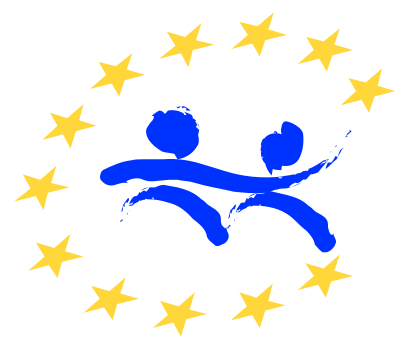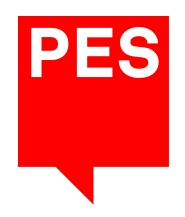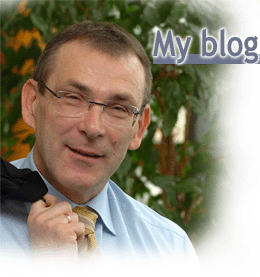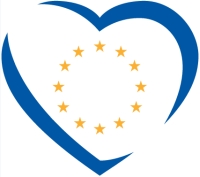 This series on the Energy Policies put forward by the main parties running for the European Parliament moves on, leaving the heavyweights and bringing focus to smaller political groups. The Alliance of Liberals and Democrats for Europe (ALDE) is the main political group at the centre, pretty much in between EPP-ED and PES. It is the major Liberal reference in Europe, as in the member states where it is represented.
This series on the Energy Policies put forward by the main parties running for the European Parliament moves on, leaving the heavyweights and bringing focus to smaller political groups. The Alliance of Liberals and Democrats for Europe (ALDE) is the main political group at the centre, pretty much in between EPP-ED and PES. It is the major Liberal reference in Europe, as in the member states where it is represented.Writing about Liberalism in Europe is not a simple task. While it can be identified as the ideology with the largest support base in the continent, and the one that had the strongest grip on politics during the last 25 years, the parties that directly subscribe to it are yet to have major electoral results (exception here must be made for Scandinavia). The main reason for such paradox has been the morphing of traditional parties (the several Conservative and Socialist flavours) closer to Liberalism, especially after the second oil crisis, that allowed them to capitalize on the broader Liberal electorate. Portugal is an interesting exception: the largest party in this state is the PSD, that although directly subscribing to Liberalism, was created under a Social-Democrat image, right after the 1974 revolution (hence the SD in the party's acronym). As the previous 48 years of Fascism rendered Conservatism unfashionable, PSD was able to capitalize on a broader electorate and eventually took the majority of seats at Parliament. Initially a member of ALDE, it forfeited and joined ranks with EPP-ED about a decade ago, openly searching further influence on euro-politics.
For foreign readers, ALDE can be broadly considered the European counter-part of the American Democrat party, although in a smaller scale and without much of the burdens of a party that is rotatively at the helm. Still, state-level members of ALDE are many times in power, taking part in coalitions needed to reach majority at local Parliaments to back up state Governments. All things considered, ALDE can be seen, together with the two heavyweights, as a third element shaping the EU to what it is today.
Visiting the party's website, it is immediately clear that the kind of budget the big parties can afford isn't there. Still, the website is quite pleasant and well organized, with a good deal of information on the party's activities and policy proposals. But there is no Election dedicated content, and the inquiring citizen needs some extra effort to get a synthetic idea of the party's programme for the coming term.
Inside a special space called “Key Documents”, at the left-side navigation bar, is a document for download entitled About ALDE leaflet [pdf!]. It starts with a message from the party's president, Graham Watson, of which it can be highlighted:
The Alliance of Liberals and Democrats for Europe offers leadership and direction. It aims to build a broad consensus about what the European Union is for and how we can face together the supranational challenges of global population growth and migration, energy security and climate change, internationally organized crime and terrorism – all of which require a supranational solutions.
Further relevant contents in the leaflet:
We stand for individual liberty, a free and dynamic business culture, economic and social solidarity, sustainability in taking actions, protection of the environment and respect and tolerance for cultural, religious and linguistic diversity.
Our vision for the EU is of a Europe which:
- Reaches out to all European countries which wish to join and respect the principles of democracy, stability, human rights and a functioning market economy;
- Promotes sustainable economic growth leading to more and better quality jobs, more consumer choice and greater opportunity for business;
- Provides freedom, security and justice for its citizens, standing up for human rights and combating discrimination in all its forms;
- Furthers justice, peace and stability and alleviates poverty in the world.
Finding ALDE's stance on Energy Policy is easy, at the top content bar there's a menu with the title “Policy themes” that unrolls a series of sub-menus, among which is Energy. This document doesn't really attempt to build a thorough Energy Policy, Vision and Mission are absent, strategies are diffuse; it is more a collage of loose tactics with an heavy focus on market liberalisation. The opening paragraphs don't leave much shadow of doubt:
ALDE Position on Energy Policy
The promotion of competitive, clean and secure energy is a key objective of the ALDE Group. This means a commitment to free and fair competition in the energy market and an active engagement in the environmental aspects of energy policy. ALDE supports firm binding targets for renewable energy and energy efficiency.
The liberalisation of energy markets and the completion of the internal market for energy has always been one of the key objectives of ALDE. A truly European energy market means real and fair competition that benefits consumers. The Group has actively pushed for energy liberalisation, e.g. in the 2006 Parliament report on the Trans European Energy Networks (electricity and natural gas), with ALDE MEP Anne Laperrouze as the EP rapporteur. The report aimed to diversify and improve the security of the European Union's energy supply by forging stronger links with non-EU countries and integrating the networks of the new Member States.
The party clearly aims at projecting an image of being a major defender of free market and its fully application to Energy. Further strategic lines are drawn ahead, but on a very superficial approach:
The ALDE Group supports the EU action plan on energy and climate change. It is important to address the multiple and linked challenges ahead for energy supply, environmental sustainability, research competitiveness and a consistent foreign policy.
Research and innovation in the energy area play a considerable role: development of renewable and clean energy and of technologies for energy saving and efficiency will reduce our energy dependence, diversify the energy sources as well as decrease our greenhouse gas emissions.
Not much to add to the Energy Policy put forward by the Commission, but in a much less committing fashion. The document only goes into more detail with two strategies, Liberalisation and Emissions:
The third liberalisation package
In September 2007 the Commission gave its proposal on a third package on liberalisation of energy markets. Its central aim is the effective separation between the control over electricity and gas transmission networks from supply and generation activities. The Commission proposed "Ownership unbundling", meaning that companies owning gas and electricity networks would not be allowed to engage in energy generation or supply at the same time. As an alternative solution the Commission suggested the establishment of Independent System Operators (ISO). This option would allow energy companies to keep their network assets, but they would have to hand over the control over their management to the ISOs. In its first reading in June 2008, the EP supported full ownership unbundling.
In reality, this is not exactly a strategy, ALDE simply limits itself to subscribe the Liberalisation strategy put together by the Commission. There's no reference to future actions or further Legislation to propose and discuss at Parliament.
The integrated proposal for Climate Action
In January 2008 the European Commission put forward an "integrated proposal for Climate Action" in order to achieve the targets that were set in 2007. The proposal includes:
- An update of the EU emissions trading scheme (EU-ETS) for the period after 2013. It includes expanding the scope of the ETS and replacing national allocation plans with either auctioning or free allocation through single EU-wide rules;
- A decision on Effort Sharing for cutting emissions in sectors not covered by the EU-ETS (such as transport);
- A directive on renewable energy. The proposed directive sets national renewable energy targets that taken together should result in the overall binding target of 20% in 2020. It also establishes the binding 10% minimum target for biofuels in transport to be achieved by each Member State;
- A communication on carbon capture and storage (CCS).
Once again, complete subscription to the Commission's Policy, no new elements are brought about. The party tries to present itself as a major element in building the Commission's strategies, providing the consensus that allowed to bridge from the need for market competitiveness and the environment. It is far from clear that such is the case. Further down the page there's a list of articles and news that further detail loose positions of the party and its members, but from which a clear Energy Policy can't be easily distilled.
This Policy project doesn't have the same level of incongruence of those presented by the big parties, but that's in great measure a consequence of its superficial nature. The only good point that can be made from this blurry image is that ALDE doesn't seem to be band-wagoning on the bio-fuels hype, although the word actually appears once in the text, it doesn't have the same highlight other parties lend to it. On the negative side is the obsession with Liberalisation; it can have obvious benefits if it comes to foster the physical inter-state integration of the Energy Grid, but how can it deal with internal depletion? And the depletion in Europe's main energy suppliers? Believing in Liberalisation and Deregulation can be seen largely as a philosophical option, but it is an illusion to push it as the remedy for all evil, and believe it can solve the EU's most pressing energy problems.
It would be better if there was more to write about ALDE's Energy Policy, but there really isn't.
 In the second installment of this series, that pretends to round up the Energy policies put forward by the main political blocs running for the European Parliament, the analysis is on the
In the second installment of this series, that pretends to round up the Energy policies put forward by the main political blocs running for the European Parliament, the analysis is on the 
